Editor’s note: MusiQology.com often features the work of my students who are thinking publicly about course content. This piece, written by a student in my history of jazz course, illustrates a problem that all humanities professors face from time to time: the student who is honestly struggling with “liking” the works under consideration. Here’s his take on the matter. GR
I would call myself a music lover, but I’m having a tough time loving Jazz. As a sophomore taking a Jazz history class and hoping to expand my musical and creative horizons, I am also struggling to find an intellectual or emotional connection to the music, connections that I know fueled the growth and development of its various styles. Throughout my listening I have asked myself a few questions, which I will address with only mild empirical – but valuable theoretical and personal – success in the following paragraphs.
Sometimes, when I hear music I really love, I laugh. Sometimes because I connect with the lyrics, other times because I connect with the sounds, and others simply because I’m astounded by the performer’s musical abilities. But whereas I can judge lyrics on an intellectual and emotional level, the barometer by which I judge musical sounds, subconscious and instantaneous though it is, is much more difficult to identify. Why do some sounds make me laugh – make me feel a strong connection to the artist – but others don’t make me feel anything? What are the inherent characteristics of musical sounds which we – knowingly or not – use to make judgments and form opinions? What is the meaning of music?
I recently saw a Jamaican group perform songs and dances of the Kumina spiritual tradition. I watched these singers and drummers sing in a loud call-and-response fashion, banging on drums, playing other percussive instruments, dancing, smiling—it looked to me like they were celebrating. But after the first song or two, one of the master drummers recited a prayer for the audience and explained some of the meaning behind the songs and dances they were performing. He went on to explain that these songs (performed in a
language completely foreign to me) were spiritual and emotional journeys; they were appeals to their god Jah for the preservation and good fortune of the lives of their people. They were prayers for food, shelter, happiness, religious connections, and harmony. I couldn’t get over the fact that these performers seemed so energetic, happy, and celebratory in their songs and dances, but their messages were so deeply spiritual and prayer-oriented. I realized that, had I merely heard their songs in passing, and hadn’t heard an explanation, I would never have guessed the songs were so spiritual. That observation led me to ask, “What is the meaning of music?”
When I watched Terence Blanchard at a recent performance play his song cycle “A Tale of God’s Will,” which is a deep meditation on the effects of Hurricane Katrina, I couldn’t stop thinking to myself that these almost purely instrumental songs made it difficult for me to understand explicitly Blanchard’s thoughts, feelings, messages, and ideas. How, if I didn’t know the inspiration for the song cycle, could I have been lucky enough to guess that the songs all shared a common theme – Katrina. At least to me, there is only a limited and difficult to identify aspect of the music, per se, that reflects Hurricane Katrina and its effects. Surely we have been socialized to understand that minor chords sound more melancholy than major chords, so naturally a song in a minor key is understood to have a tone of sorrow; but surely I can’t possibly ever understand the presumably immense emotional and intellectual consideration that went into each of his compositions. If music requires explanation, then what does it actually mean: do volume of liner notes and critical interpretation can put me inside of the intellectual and musical processes that are requisite for each of Blanchard’s compositions.
It is not my intention to trivialize the magic that is music. I am a huge fan of many
different musical sounds and styles. I even play a couple of instruments pretty well myself. But I can’t help but always wonder what an artist was really thinking when he wrote a piece. There isn’t a way that I can discern a musician’s true insights without lyrics to map them out – even if they are poetic and metaphorical. A connection with music is one I seek, not one I seek to play down. Wynton Marsalis said that understanding music requires more than waiting for the music simply to come to you. He argued that you have to go actively after the meaning of the music yourself, because the beauty and meaning of music and art will not express themselves explicitly to you if you are only trying to understand them passively. Maybe I have been too passive in my search for a connection to Jazz. But I just wish I could know what it is about some music that makes me laugh and other music (for the moment, Jazz) that doesn’t. Am I even “laughing” at the right thing?
Andrew Maxman
Tags: Jazz, jazz education, MusiQology






 Share On Facebook
Share On Facebook Tweet It
Tweet It

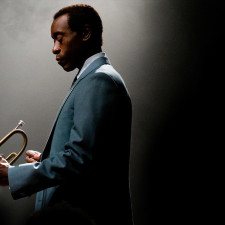
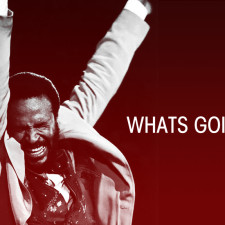



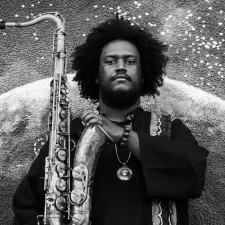
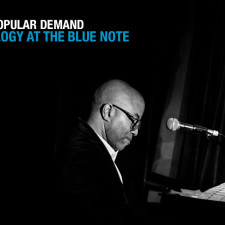
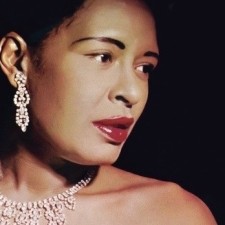
![[Philly EVENT] Screening of Amazing: A Film about Bud Powell](http://musiqology.com/blog/wp-content/uploads/2015/03/bud-powell-225x225.jpg)


